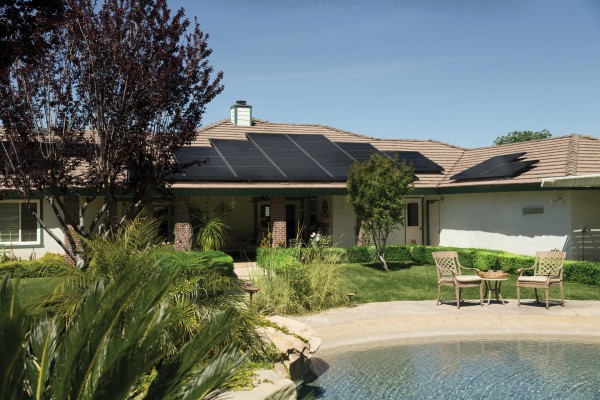

Speaking at Ami's annual dinner last night (June 22) in London, Rob Sinclair said: "The biggest challenge of all is becoming green. It will be a huge driver for all of us for years to come.
"How we become carbon neutral by 2050 is a challenge that I don't think the world actually has quite worked out the answers to yet.
"We know that with property [accounting] for 24 per cent of EPA emissions, it will be a huge challenge to try to get us to the right place."
At the dinner, Sinclair unveiled a series of "steps" to help tackle the issue. Firstly, Ami has pledged to plant 300 trees - one for every guest - to partially offset the carbon cost of the dinner.
He also announced that Ami was working with the Green Finance Institute and other trade bodies to work out how to communicate the need to move to a greener property sector, and what can be done practically to reach carbon neutrality.
He said Ami will be collaborating with others to produce two guides - one for brokers on how to articulate to consumers the reality of retrofitting, and one for consumers so they can understand the retrofitting challenge for themselves.
Sinclair said a new website - greenmortgageadvice.org.uk - was also in the final stages and would shortly be launched.
He said this will not only provide information for brokers about the importance of moving towards a green economy but also help lenders thinking about providing products to meet the green challenge.
It will also enable consumers to improve the long-term value of their properties.
This open-architecture site will be "Part of Ami's legacy for the industry", he added.
Referencing the controversy in May, when HSBC's now-suspended head of responsible investment, Stuart Kirk, made glib comments about the "hyperbole" in climate change rhetoric, Sinclair added: "Unlike HSBC I do care if half the Eastern seaboard of America is under water, because if that's happened, then East Anglia has gone."
Residential and commercial property sectors represent some 40 per cent of energy consumption across Europe, as well responsible for approximately 36 per cent of carbon emissions.
However, while there has been plenty of research and support for green housing, little concrete policy has been put in place.
Coalition for energy efficiency
As a result, the Green Finance Institute launched the Coalition for the Energy Efficiency of Buildings Europe, with support from climate think tank E3G, in November last year.
The Coalition aims to bring together leaders in the finance, real estate and energy sectors, and across policy, academia and non-profit organisations, in each country of operation.
The idea is to co-develop the innovative financial products that will address the renovation investment gap, such as retrofitting properties across the UK and Europe.
According to the Coalition:
- 97 per cent of Europe’s buildings – as many as 215mn – will require some level of renovation before 2050.
- Europe’s building sector is responsible for 40 per cent of energy consumption, more than any other sector.
- It account for 36 per cent of the EU’s energy-related GHG emissions.
- To meet the EU’s 2030 climate target, €3.5trn of total investment will be needed this decade to decarbonise Europe’s buildings through renovation.
British mortgage brokers agreed that more needs to be done in the property sector to improve how it tackles climate change.
Speaking to FTAdviser, the director at Virtus Private Finance, Sebastian Riemann, said: "First we need to make energy performance certificates relevant.
"It’s pointless focusing on the EPC rating but it should be about how green a property is compared to its potential.
"Otherwise only newly built properties qualify for green mortgages, and a Victorian house, for instance, never will - even if the owner does everything in their power to be greener."
His comments on the EPC were backed up by Edinburgh Mortgage Advice's founder Mark Dyason, who said everyone is focusing on the EPC as part of assessing housing value, but there appears to be no proper regulation over those who get qualified to carry out EPCs.
Dyason gave an example of one client who had a property with an EPC of F. "I called him and said 'no can do'."
A little while later the client submitted an EPC with a D.
"The current EPC [regime] is not robust enough. Look, in Scotland, we still have home reports. Five years ago or so I said that of the 20 paged, everyone reads just two lines: the valuer's comments. This is to make sure there is no knotweed, and to see the value of the property.
"Well, now they look at the EPC as well."
Dyason said he was a supporter of such initiatives as the GFI and the Coalition, but added: "These are in their infancy, as regulators, governments, lenders and risk functions are finding their feet."
simoney.kyriakou@ft.com



